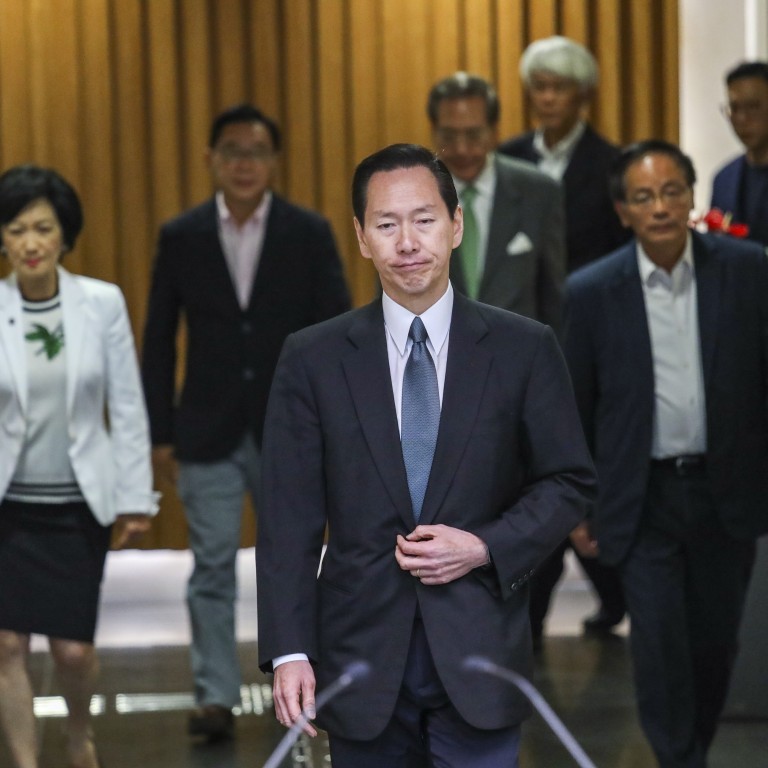
Political reform in Hong Kong could begin with a revamp of the ‘peripheral’ Executive Council
- An Exco member’s revelation that the chief executive turned down their offer to resign en masse, on the grounds that the council merely gives advice, raises questions about its function, membership and whether meetings need to be confidential
Here’s how Chief Executive Carrie Lam Cheng Yuet-ngor responded to the extraordinary piece of political news, according to Ip: she rejected the idea because Exco was only on the “periphery, merely giving advice”.
This is a shocking revelation about the nature of the Exco. It is interesting to learn that these advisers sit only on the sidelines, almost like a detached group of spectators, albeit with front-row seats. They meet almost weekly, but they play no part in, well, anything – at least, that’s how the chief executive sees it.
This naturally leads to the question: what role does Exco play in the whole business of “Hong Kong people governing Hong Kong”? Do they just meet to chat about the weather?
Their Tuesday mid-morning meetings have been almost the only opportunity for Hongkongers to see the chief executive in person since June. En route to chairing the Exco meeting, Lam briefly meets the press, gets grilled on the same issues and has the opportunity to mouth off the same non-answers before running off to see her cabinet members.

Unfortunately, no one is able to tell us ordinary Hongkongers what happens during these meetings, as they are strictly confidential. Without permission from the chief executive, nothing can be revealed.
Article 54 of the Basic Law spells out very clearly that the Executive Council is “an organ for assisting the chief executive in policymaking”. Article 56 requires that the chief executive “consult the Executive Council before making important policy decisions, introducing bills to the Legislative Council, making subordinate legislation, or dissolving the Legislative Council”.
How the Executive Council lost its voice and power
I can’t believe we need a recap here, but let’s remind Exco members that the hell-fire in which we have been burning for the past six months started very close to the periphery of power, where amendments to the extradition laws were supposed to have been discussed.
So, no, Exco members don’t just sit and observe from their sponsored VIP seats. (I write “sponsored” because they are rewarded handsomely, both financially and in prestige). They are meant to be inside the ring, playing every bit of the game of politics with the chief executive.
If they are merely an audience privy to some twisted political plot but with no power to influence the decision-making process, as Lam seems to claim, then why the need for the secrecy and, more importantly, why the need for such exclusive membership?
Executive Council convenor complains of policy making ambush
Maybe this is where we can restart discussions on political reform – overhauling the Executive Council in terms of its make-up, functions and level of transparency. Let’s not kid ourselves: in an executive-led governance system, Exco plays a crucial role.
Political crises involving bad political judgment speak directly to the effectiveness and competence of the chief executive and his or her Executive Council.
Alice Wu is a political consultant and a former associate director of the Asia Pacific Media Network at UCLA

